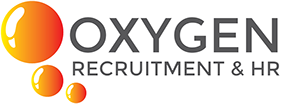How to write a good Resume
Regardless of your work experience and career length, a ‘good’ or ‘bad’ resume can impact whether you’re likely to land even just a phonecall from a potential employer. Because of this, it’s important to show off your skills, experience and work history in the best possible way from the get-go.
Here are our best tips for getting it right, and making a great first impression on paper:
Resume length
Opinions on the optimum length for resumes varies widely! At Oxygen Recruitment & HR we suggest no shorter than a page or two for early career professionals, but no longer than 3-4 pages. It’s very hard to keep someone’s interest with a longer document. Consider summarising any old, perhaps even high school job experience from many years ago, that likely isn’t relevant to the job you’re going for now. Keep the focus on your employment history that will reflect well on your skillset.
Necessary and unnecessary information
Nowadays it’s actually illegal for an employer to ask you for certain pieces of personal information, such as your marital status, gender, and cultural background or ethnicity, so there is no need to include this on your resume. You may wish to share your LinkedIn profile and your suburb for location purposes, and of course your contact details so the hiring manager can reach you. Employment dates are necessary information. We suggest including months, not just years on the dates for your roles and remember to go from most recent role first.
Be as clear as possible
Trying to look too ‘fancy’ with different text fonts and imagery on your resume can be off putting to the reader. Use simple, plain, easy on the eyes formatting that translates and displays well on different software and devices. Don’t over complicate things with clutter like tables or graphics, or bright colours. Use bold, clear headings and simple plain dot points, so the information is easy to follow down the page. And don’t skip a final spell check!
Consider your personal brand as a professional
If you have an old email address that might not give a good impression, perhaps it’s worth creating a new separate address for job applications, or simply updating it completely. Remember your resume is a reflection of you and your professional footprint, skim read your resume with this in mind.
Pay attention to the application requirements
There is a reason some hiring managers request a response to selection criteria, and it’s so they can see who is worth engaging with and paying attention. You can appreciate the high level of applications managers sometimes receive, so by noticing all the small details you are more likely to be considered and get noticed. It may be worth adjusting your resume for specific job requirements.
Do you need a cover letter?
Not always. But a good cover letter as an introduction and response to a job ad is a great way to showcase why you think you’d be a good fit for the position you’re applying for, and what you can bring to the role. It’s always a good idea to tailor this to suit each position you apply for, and consider sending one if you’re moving into a new sector or industry, to highlight your transferrable skills and what your motivations are for making the move, or if you are relocating from overseas.
